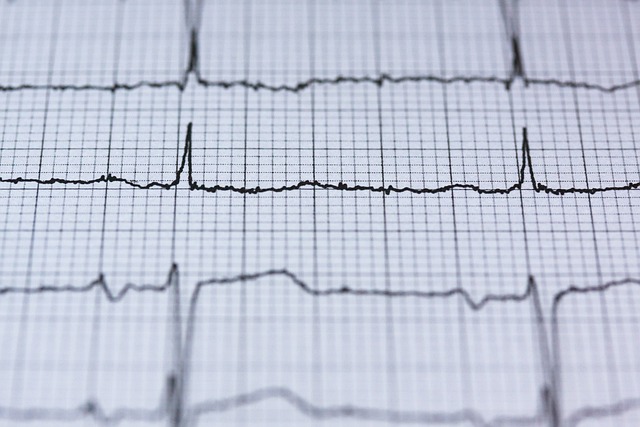Associations between types and sources of dietary carbohydrates and risk of cardiovascular disease: a prospective cohort study of UK Biobank participants
Background
Recent studies have reported that associations between dietary carbohydrates and cardiovascular diseases (CVD) may depend on the quality, rather than the quantity, of carbohydrates consumed. This study aimed to evaluate the associations between types and sources of dietary carbohydrates and the incidence of CVD. A secondary objective was to examine the associations of carbohydrate intake with triglycerides within lipoprotein subclasses.
Methods
A total of 110,497 UK Biobank participants with ≥ two (maximum five) 24-hour dietary assessments who were free of CVD and diabetes at baseline were included . Multivariable-adjusted Cox regressions were used to estimate the risks of total incident CVD (4,188 cases), ischemic heart disease (IHD; 3,138), and stroke (1,124) by carbohydrate intake over a median follow-up of 9.4 years, and the effect of modeled dietary substitutions. Associations of carbohydrate intake with plasma triglycerides within lipoprotein subclasses measured by nuclear magnetic resonance (NMR) spectroscopy were examined in 26,095 participants with baseline NMR spectroscopy measurements.
Results
Total carbohydrate intake was not associated with CVD outcomes. Free sugar intake was positively associated with total CVD (HR; 95% CI per 5% energy, 1.07; 1.03–1.10), IHD (1.06; 1.02–1.10). and stroke (1.10, 1.04–1.17).
Fiber intake was inversely associated with total CVD (HR; 95% CI per 5 g/d, 0.96, 0.93–0.99).
Modeled isoenergetic substitution of 5% of the energy of refined grain starch with whole grain starch was inversely associated with total CVD (0.94; 0.91–0.98) and IHD (0.94; 0.98). 90–0.98), and the substitution of free sugars with non-free sugars was inversely associated with total CVD (0.95; 0.92–0.98) and stroke (0.91; 0.98). 86–0.97).
Free sugar intake was positively associated with triglycerides within all lipoproteins.
Conclusions
Higher free sugar intake was associated with a higher incidence of CVD and higher concentrations of triglycerides in all lipoproteins. Higher fiber intake and replacement of refined grain starch and free sugars with whole grain starch and non-free sugars , respectively, may be protective against incident CVD.
Comments
A higher intake of free sugars is associated with a higher risk of cardiovascular disease, reports a study published in BMC Medicine . The findings strengthen the evidence for the global dietary recommendation to reduce free sugar consumption to less than five percent of total daily energy.
Rebecca Kelly and her colleagues analyzed data from 110,497 people in the UK Biobank who had completed at least two dietary assessments. Researchers followed people for about 9.4 years, and during this time, total cardiovascular disease (heart disease and stroke combined), heart disease, and stroke occurred in 4,188, 3,138, and 1,124 participants, respectively.
The authors found that total carbohydrate intake was not associated with cardiovascular disease outcomes. However, when looking at the types and sources of carbohydrates consumed, they found that a higher intake of free sugar from foods such as sugary drinks, fruit juices and sweets was associated with a higher risk of all cardiovascular disease outcomes.
For every 5% more total energy from free sugars, the associated risk of total cardiovascular disease was 7% higher.
The authors found that the risk of heart disease was 6% higher, while the risk of stroke was 10% higher. Additionally, consuming five more grams of fiber per day was associated with a 4% lower risk of total cardiovascular disease, but this association did not remain significant after accounting for body mass index (BMI).
The authors suggest that replacing free sugars with non-free sugars , mostly those found naturally in whole fruits and vegetables, and increasing fiber intake, may help protect against cardiovascular disease.
The authors conclude that not all carbohydrates may be associated with an increased risk of cardiovascular disease and that it is important to consider the type and source of carbohydrates consumed when investigating cardiovascular health.
Final message In summary, we found that associations between carbohydrate intake and cardiovascular disease may depend on the type and source of carbohydrates consumed, particularly sugars. Free sugar intake was associated with increased risks of total CVD and CVD subtypes, particularly total stroke, supporting the global dietary recommendation to consume less than 5% of total energy from free sugars. Free sugar intake was positively associated with triglycerides within all lipoprotein subclasses, which may partly explain the observed increased risk of IHD, while the mechanisms for increased overall stroke risk remain unclear. Higher fiber intake was associated with lower risks of total CVD, and replacing refined grain starch and free sugars with whole grain starch and non-free sugars, respectively, may protect against CVD. Our findings support the importance of the type and source of carbohydrates consumed for cardiovascular health. |
















